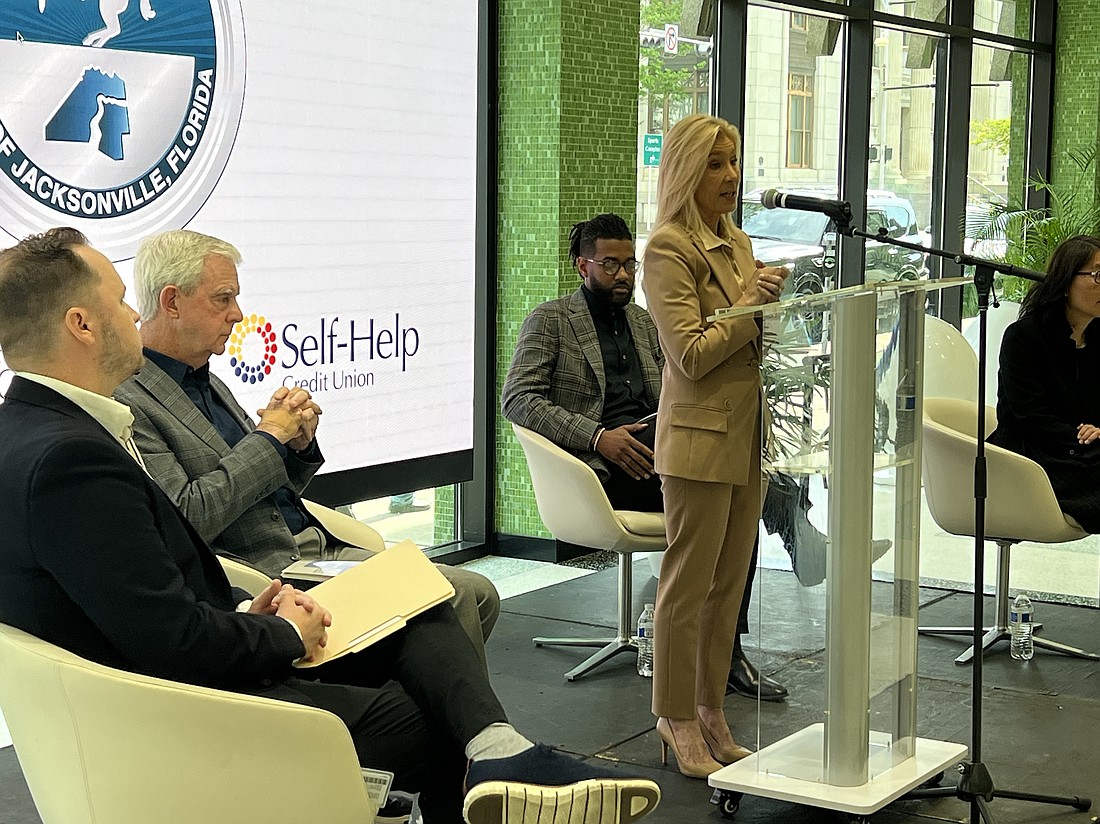
Mayor Donna Deegan announced a $40 million plan April 10 to fund the creation of affordable workforce housing in Duval County.
Since 2011, the typical renter has been spending more than 50% of their monthly income on housing. Those earning 50% of the median income in Duval County are facing a deficit of almost 37,000 affordable units, according to statistics provided by the Jessie Ball duPont Fund.
The median household income in Jacksonville is $70,533, according to the city website.
Deegan plans to ask the City Council to allocate $10 million in the city’s 2024-25 budget toward the plan. If approved, it is expected that another $30 million will be made available from private sector contributions.
“This has accelerated to the top of our concerns in our community,” Deegan said at the Jessie Ball duPont Fund offices Downtown.
“There are only 48 affordable housing units available for every 100 renters who fall into this category.”
Already there are commitments of about $14 million in private-sector funding, she said.
The Jessie Ball duPont Fund President Mari Kuraishi said the group has pledged $4 million to the cause.
The Community Foundation for Northeast Florida and Northern Trust have expressed interest in participating, according to a news release from Deegan’s office.
Finding a solution for this housing problem has been in the works for more than two years, Kuraishi said.
The city said in the release that Self-Help Ventures Fund would administer the plan. It estimates the partnership could finance acquisition and development of 500-1,000 housing units over the tax credit compliance period. The capital in the loan fund can be reinvested to continue increasing the supply of housing.
It is expected that the $40 million will roll over four times during the duration of the loan to become $120 million in housing funding.
“This loan fund puts more fuel in the tank so that more affordable housing can be built and preserved each year,” said Amanda Frazier Wong, president of Self-Help Ventures Fund, in the release.
If the funding is approved, Deegan said builders could start applying for loans by the first of next year.
The $40 million of city and private money is a loan that will be repaid by developers and builders over the next 20 years.
The money can be used for new construction and rehabilitation of existing properties.
Typically, Low Income Housing Tax Credits cover between 50-70% of construction costs. This money would be used to fill those cost gaps.
Affordable workforce housing applies to units for those with jobs that pay under the county’s median income. It is not Section 8 housing, which comprises housing vouchers for low-income individuals and families.
Self-Help Ventures Fund is a subsidiary of Self-Help Federal Credit Union of Durham, North Carolina.